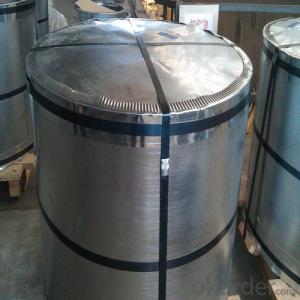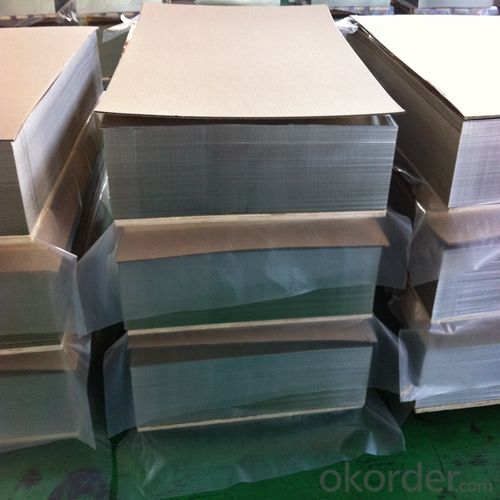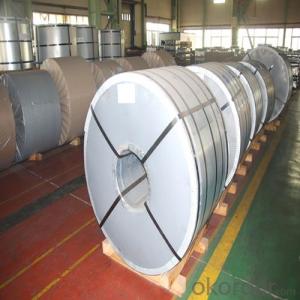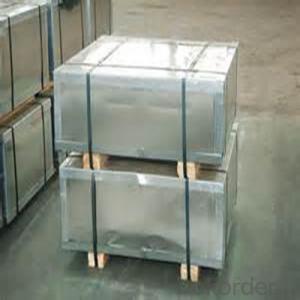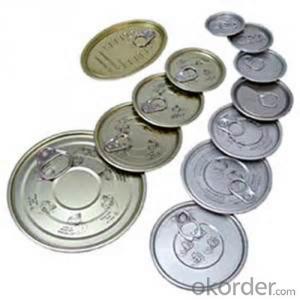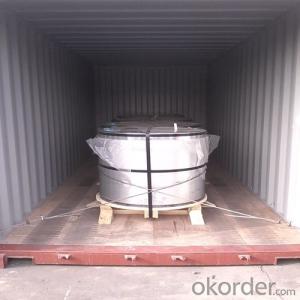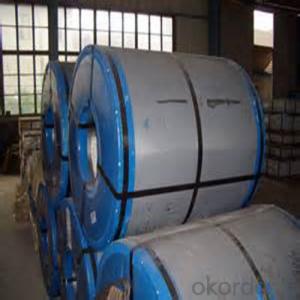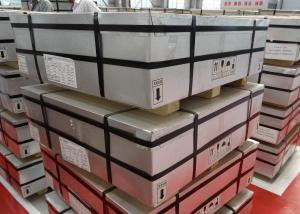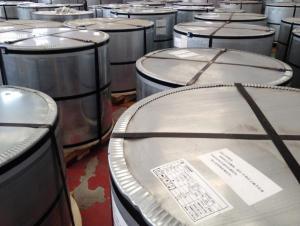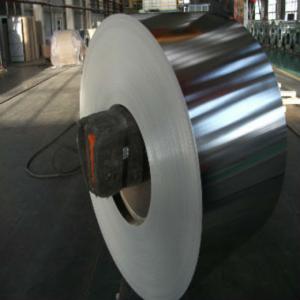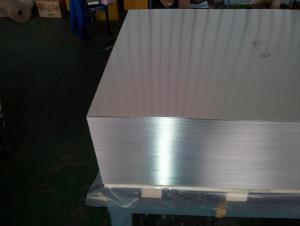Electrolytic Tinplate of Good Quality for Metal Cntainers Usage
- Loading Port:
- Shanghai
- Payment Terms:
- TT OR LC
- Min Order Qty:
- 25 m.t.
- Supply Capability:
- 15000 m.t./month
OKorder Service Pledge
OKorder Financial Service
You Might Also Like
Specification
1.Structure of Electrolytic Tinplate of Good Quality for Metal Cntainers Usage Description
Appearance – Tinplate is characterized by its beautiful metallic luster. Products with various kinds of surface roughness are produced by selecting the surface finish of the substrate steel sheet.
Paintability and printability – Tinplates have excellent paintability and printability. Printing is beautifully finished using various lacquers and inks.
Formability and strength – Tinplates have got very good formability and strength. By selecting a proper temper grade, appropriate formability is obtained for different applications as well as the required strength after forming.
2.Main Features of the Electrolytic Tinplate of Good Quality for Metal Cntainers Usage
Corrosion resistance – Tinplate has got good corrosion resistance. By selecting a proper coating weight, appropriate corrosion resistance is obtained against container contents. Coated items should meet 24 hour 5 % salt spray requirement.
Solderability and weldability – Tinplates can be joined both by soldering or welding. These properties of tinplate are used for making various types of cans.
Hygienic – Tin coating provides good and non toxic barrier properties to protect food products from impurities, bacteria, moisture, light and odours.
Safe – Tinplate being low weight and high strength makes food cans easy to ship and transport.
Eco friendly – Tinplate offers 100 % recyclability.
Tin is not good for low temperature applications since it changes structure and loses adhesion when exposed to temperatures below – 40 deg C.
3.Electrolytic Tinplate of Good Quality for Metal Cntainers Usage Images
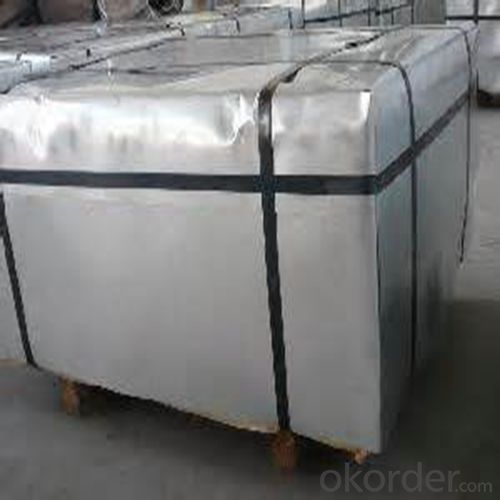
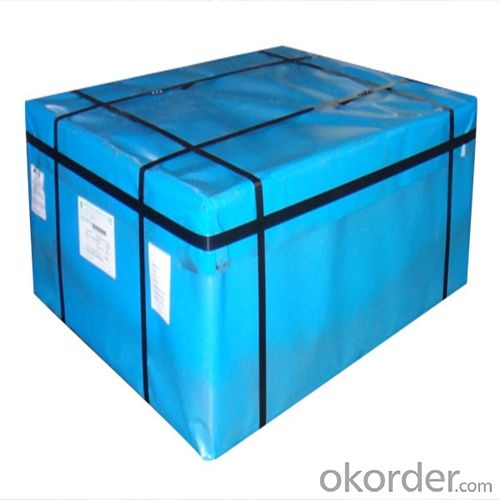
4.Electrolytic Tinplate of Good Quality for Metal Cntainers Usage Specification
Specification of :
Standard: ISO 11949 -1995, GB/T2520-2000,JIS G3303,ASTM A623, BS EN 10202
Material: MR,SPCC
Thickness:0.15mm - 0.50mm
Width: 600mm -1150mm
Temper: T1-T5
Annealing: BA & CA
Coil Inner Diameter: 508mm
Weight: 6-10 tons/coil 1~1.7 tons/sheets bundle
Passivation:311
Oil: DOS
Surface: Finish,bright,stone,matte,silver
5.FAQ of Electrolytic Tinplate of Good Quality for Metal Cntainers Usage
- What is tinning and how does it work?
Tinning is the process of thinly coating sheets of wrought iron or steel with tin, and the resulting product is known as tinplate. It is most often used to prevent rust.
- Do you only have prime quality tinplate?
We can supply both prime and second quality tinplate.
- Q: How does tinplate perform in terms of heat resistance?
- Tinplate has a relatively low heat resistance compared to other metal materials. It can withstand moderate temperatures without significant deformation or damage, but it is not suitable for high-temperature applications.
- Q: How is tinplate coated for paint cans?
- Tinplate is typically coated for paint cans by applying a thin layer of protective material, such as lacquer or polymer, onto the surface of the tinplate. This coating acts as a barrier to prevent the metal from coming into direct contact with the paint, ensuring the can remains corrosion-resistant and the paint remains uncontaminated.
- Q: What are the factors that affect the price of tinplate?
- The factors that affect the price of tinplate include the cost of raw materials, such as tin and steel, supply and demand dynamics, manufacturing and processing costs, currency exchange rates, trade policies and regulations, technological advancements, and overall market conditions.
- Q: What are the main challenges in tinplate coating?
- The main challenges in tinplate coating include ensuring uniform and consistent coating thickness, preventing defects such as pinholes and streaks, managing adhesion between the tin and base metal, and addressing environmental concerns related to the use of certain chemicals and waste disposal. Additionally, maintaining high production speeds while maintaining quality standards and reducing costs poses another challenge in tinplate coating.
- Q: What are the applications of tinplate?
- Tinplate is commonly used in various applications due to its unique properties. It is primarily used in the packaging industry for food and beverage containers, as tin coating provides excellent protection against corrosion and ensures product safety. Tinplate is also utilized in the manufacturing of aerosol cans, paint containers, and metal closures. Its versatility extends to the automotive industry, where it is employed for making fuel tanks, oil filters, and various automotive components. Additionally, tinplate finds applications in the construction sector for roofing, ductwork, and HVAC systems.
- Q: Can tinplate be used for roofing and construction?
- Yes, tinplate can be used for roofing and construction purposes. Tinplate is a durable material that provides excellent corrosion resistance and is often used for roofing applications due to its ability to withstand various weather conditions. It is also commonly utilized in construction for cladding, wall panels, and other architectural elements.
- Q: What are the environmental benefits of using tinplate?
- There are several environmental benefits of using tinplate. Firstly, tinplate is highly recyclable, meaning it can be reused multiple times without losing its properties. This helps reduce the demand for new raw materials and decreases the amount of waste sent to landfills. Additionally, tinplate is resistant to corrosion, which means it has a longer lifespan compared to other packaging materials. This reduces the need for frequent replacements, thereby conserving resources and reducing overall environmental impact. Lastly, tinplate has excellent barrier properties, which protect the contents of the packaging from external factors such as moisture, light, and oxygen. This helps preserve the quality and freshness of the products, reducing food waste and promoting sustainability.
- Q: Can tinplate packaging be used for promotional items?
- Yes, tinplate packaging can definitely be used for promotional items. Tinplate is a versatile and durable material that can be customized with various designs and branding. It offers a unique and premium look, making it an attractive choice for promotional items such as gift sets, collectibles, or limited edition products. Additionally, tinplate packaging provides excellent protection for the items inside, ensuring their quality and longevity.
- Q: Soup with tin cans loaded also need high temperature sterilization?
- If you are a start-up factory, you need to save money, you can choose a small sterilization pot, covering an area of small, heat source is also very good solution.
- Q: How does tinplate contribute to the preservation of historical artifacts?
- Tinplate contributes to the preservation of historical artifacts by providing a protective coating that prevents corrosion and deterioration. This coating acts as a barrier against moisture, oxygen, and other elements that can cause damage to the artifacts over time. Additionally, tinplate can be used for packaging and storage of these artifacts, providing a safe and secure environment that further helps in preserving their integrity for future generations.
Send your message to us
Electrolytic Tinplate of Good Quality for Metal Cntainers Usage
- Loading Port:
- Shanghai
- Payment Terms:
- TT OR LC
- Min Order Qty:
- 25 m.t.
- Supply Capability:
- 15000 m.t./month
OKorder Service Pledge
OKorder Financial Service
Similar products
Hot products
Hot Searches
Related keywords
